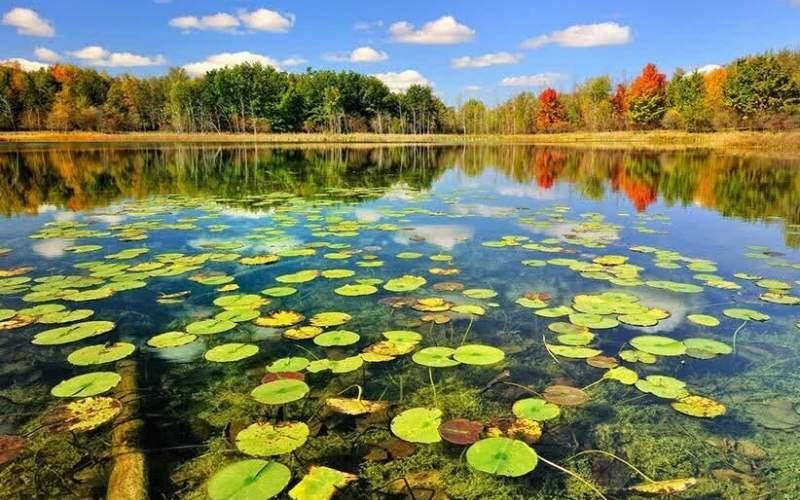The Iran Project
: On the verge of World Wetlands Day, which is annually held on February 2, a podcast series has been launched on introducing wetlands inside and outside the country with the first episode allocated to Anzali Wetland in northern Iran.
Saturday 27 January 2024 - 20:19
Story Code : 413506
Source : Tehran Times
Podcast on wetlands now available
The episodes are currently in Persian, but they will be available in English as well before long.
For the time being, the podcast provides general information about the international wetlands of Iran, and soon, it will also include information about wetlands in West and Central Asia.
World Wetlands Day celebration
World Wetlands Day is celebrated every year on February 2. This year World Wetlands Day is set to be celebrated in Mazandaran province, Ramsar city.
The Day aims to raise global awareness about the vital role of wetlands for people and the planet. The theme of World Wetlands Day 2024 is Wetlands and human wellbeing.
The theme recognizes wetlands as critical to people and nature, underscoring the intrinsic value of wetland ecosystems and their benefits and services, including contributions to sustainable development and human wellbeing.
World Wetlands Day marks the date of the adoption of the Convention on Wetlands on February 2, 1971, in the Iranian city of Ramsar on the shores of the Caspian Sea.
It came into force in 1975. Since then, almost 90 percent of UN member states, from all the world’s geographic regions, have acceded to become “Contracting Parties”.
The Convention on Wetlands is an intergovernmental treaty that provides the framework for the conservation and wise use of wetlands and their resources.
A total of 172 countries with about 2503 international wetlands are members of this international convention.
Wetlands importance
Wetlands are indispensable for the countless benefits or “ecosystem services” that they provide humanity, ranging from freshwater supply, food and building materials, and biodiversity, to flood control, groundwater recharge, and climate change mitigation.
Yet study after study demonstrates that wetland area and quality continue to decline in most regions of the world. As a result, the ecosystem services that wetlands provide to people are compromised.
The Ramsar Convention uses a broad definition of wetlands. This includes all lakes and rivers, underground aquifers, swamps and marshes, wet grasslands, peatlands, oases, estuaries, deltas, tidal flats, mangroves, and other coastal areas, coral reefs, and all human-made sites such as fish ponds, rice paddies, reservoirs, and salt pans.
In Iran, 141 wetlands with ecological value with an area of over 3 million hectares have been identified, of which 25 wetlands are designated as wetlands of international importance (registered in the Ramsar Convention) covering more than 1.4 million hectares and four sites are biosphere reserves.
The Department of Environment determined water rights for 11 wetlands out of 25 wetlands that are registered in the Ramsar Convention, but the conditions of the wetlands show that the water rights have not been fully met.
Due to insufficient rainfall and recent droughts, as well as non-implementation of some of the programs of the Department of Environment to protect wetlands, now about two million hectares out of the three million hectares area of the country's wetlands are dry and turned into sand and dust spots.
An official with the Department of Environment has said comprehensive management plans have been prepared for 44 wetlands in the country.
The unique characteristics of wetlands, including groundwater control, climate change adaptation, the livelihood of local communities through fishing, livestock grazing and agriculture, natural water purification, purification and absorption of pollutants, and nature tourism have made sustainable management and protection of wetlands essential for humans, ISNA quoted Jaleh Amini as saying.
Environmental management based on a comprehensive approach is a strategy for the integrated management of land, water, and livelihood resources that promotes conservation and sustainable use in a balanced manner.
This approach is the primary framework for action under the Convention on Biological Diversity. The indigenous approach puts people and their type of exploitation of natural resources exactly at the center of decision-making.
Reporter : Editorial of The Iran Project
# Tags











